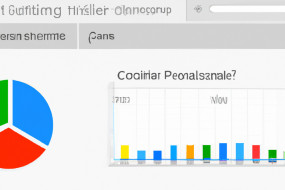
Search engine optimization (SEO) is an important aspect of digital marketing that can make or break a website's success. However, many website owners make careless mistakes that negatively impact their site's ranking and visibility. In this article, we'll cover 10 common SEO mistakes and provide tips on how to avoid them, so you can improve your website's performance and achieve higher search engine rankings.
1. Keyword Stuffing
Keyword stuffing refers to the practice of stuffing a page with excessive keywords in the hopes of ranking higher in search results. While it may have worked in the past, search engine algorithms have become smarter, and such practices are now considered spammy and can hurt your site's ranking. Instead, focus on using relevant keywords in a natural and meaningful way throughout your content.
2. Not Optimizing for Mobile
In today's mobile-first world, it's essential to have a mobile-responsive website. Failure to do so can result in a poor user experience, which can impact your ranking in search results. To optimize for mobile, ensure your website is designed to be responsive, fast-loading, and easy to navigate on mobile devices.
4. Not Utilizing Internal and External Links
Internal and external linking is an essential aspect of SEO, as it enables search engines to crawl and understand your site's structure and content. Internal links help users and search engines navigate your site, while external links demonstrate your site's credibility and authority. Be sure to incorporate relevant internal and external links throughout your content.
5. Neglecting Image Optimization
Images can enhance the user experience and make your content more engaging, but they can also slow down your site's loading time if not optimized correctly. To ensure your images don't negatively impact your site's performance, compress them to reduce their file size, use relevant alt tags, and include descriptive file names.
6. Poor Site Structure
Your website's structure not only impacts user experience but also affects your site's ranking. A well-structured site with clear navigation enables users and search engines to easily locate and understand your content. Take time to organize your website's pages, use descriptive URLs, and include a comprehensive sitemap to improve your site's structure.
7. Not Updating Content Regularly
Search engines prioritize fresh, relevant content, so it's crucial to regularly update your site with new, high-quality content. Neglecting to do so can result in a lower ranking in search results. Make a schedule to regularly update your content with blog posts, news articles, or product updates to increase your site's visibility.
8. Not Analyzing and Adjusting Your SEO Strategy
SEO is not a one-time fix but requires constant analysis and adjustment to stay relevant and effective. Neglecting to monitor and adjust your strategy can result in missed opportunities and poor performance. Utilize analytics tools to analyze your site's performance, identify areas for improvement, and adjust your strategy accordingly.
9. Overlooking Local SEO
Local SEO is essential for businesses with a physical location. Neglecting to optimize for local search can result in missed opportunities and lower visibility in search results. Ensure your website includes location-specific keywords and use Google My Business to display important information, such as your address, phone number, and business hours.
10. Duplicating Content
Duplicate content refers to the practice of copying content from one page and posting it on another page or site. Not only is this illegal, but it can also result in a lower ranking in search results, as search engines penalize sites with duplicate content. Ensure all content on your site is original, high-quality, and properly attributed if quoting or citing sources.
















